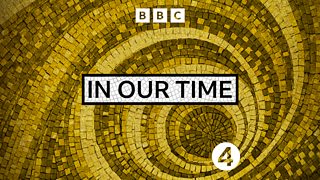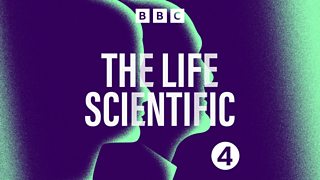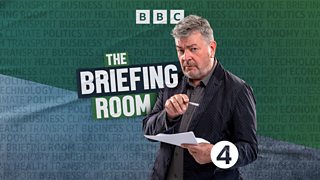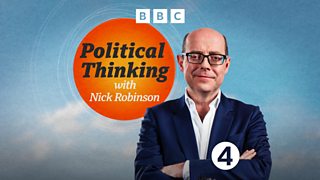New to In Our Time? Here are ten great places to start
Radio 4's flagship series, In Our Time, has reached 1000 episodes. Hosted since the beginning by author, TV presenter and critic Melvyn Bragg, the programme has evolved in a compelling way to become the Βι¶ΉΤΌΕΔ’s most downloaded weekly podcast globally, as well as one of the most popular for people under the age of 35.
The winning formula is a recorded conversation, over 45 minutes, in which Bragg quizzes academic specialists about almost any subject of interest in human life, including history, science, philosophy, religion and the arts. The rules are that there must be no book-plugging and the guests must be active in teaching the subject.
With so many episodes to choose from, all on Βι¶ΉΤΌΕΔ Sounds, editor John Goudie suggests ten classic episodes to get you started. Follow the links in the titles to listen.
In Our Time
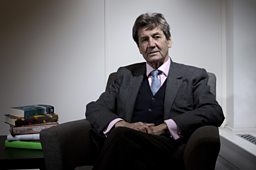
Join Melvyn Bragg and his guests for In Our Time – fascinating, in-depth and illuminating discussions about... just about anything which is of interest in human history to the present day.
The Knights Templar
In this episode, Melvyn Bragg and guests discuss the rise and abrupt fall of this famous military order which was founded around 1119: they were a strong fighting force and financial power for almost 200 years, until they were persecuted out of existence. Their legend has lived on, featuring in novels, films and video games, including Assassin’s Creed.
Wuthering Heights
Melvyn and a team of experts gather to explore Emily Brontë’s only novel, published in 1847, a year before her death. The book tells the story of Heathcliff and Cathy – a tale of love, hatred, revenge and self-destruction over two generations in a remote moorland home.
The Gin Craze
The story of the 18th-century's sudden thirst for gin is the intoxicating subject as Melvyn and his guests look into a tipple which was seen as a Protestant drink preferable to Catholic brandy. Soon large numbers of people were drinking two pints of gin a week, which prompted the 1751 Gin Act, an attempt to bring this excessive consumption under control.
Feathered Dinosaurs
Following the discoveries of fossils showing evidence of feathers, palaeontologists have questioned the idea that all dinosaurs are related to lizards, and new research has focused on feathers, where on the body they might be found, and which dinosaurs had them.
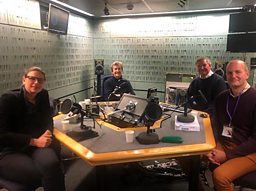
Frederick Douglass
Born into slavery in Maryland in 1818, Douglass escaped to become a prominent abolitionist, and a brilliant orator and campaigner, attracting vast audiences. His book, Narrative of the Life of Frederick Douglass, an American Slave, included accounts of his brutal treatment when young, and proved highly influential.
The Long March
The Long March is a key moment in the history of China in the 20th century: in 1934, thousands of Red Army soldiers, later joined by other armies, began a march which covered thousands of miles, across marshes and mountains, pursued by forces of the ruling Kuomintang. Mao Zedong emerged at the head of the march, and later ensured that the Long March had a central place in his version of the development of modern China.
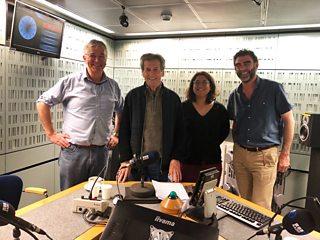
Hannah Arendt
This episode explores the life and ideas of the writer and philosopher Hannah Arendt, whose thinking was partly shaped by her experiences as a Jew in Nazi Germany, before her escape to France and then America. When covering the trial of Adolf Eichmann, one of the organisers of the Holocaust, she famously wrote of "the banality of evil".
Shakespeare's Sonnets
Now considered some of the most inspiring of all Shakespeare’s works, the Sonnets were not a success when first published in 1609, but in the centuries since they have appealed to many different readers in many different ways – open to interpretation and re-interpretation, sometimes baffling and even troubling.
Superconductivity
Melvyn and his guests open up the subject of Superconductivity (a key scientific discovery in 1911), and discuss the phenomenon of how electrical resistance can disappear in some materials at extremely low temperatures – and the consequences of this. Superconductors have transformed our world, from MRI scanners to the operation of the Large Hadron Collider, and might bring nuclear fusion a little closer.
The Iliad
The Iliad is the great epic poem attributed to Βι¶ΉΤΌΕΔr, about events in the Trojan war and the long siege of Troy, with a focus on the Greek military hero Achilles, and his withdrawal from and return to battle. It’s considered one of the first major works in world literature, and one of the most influential.

More serious discussion on Radio 4
-
![]()
In Our Time
Melvyn Bragg and his guests discuss the history of ideas – including topics drawn from philosophy, science, history, religion and culture.
-
![]()
The Life Scientific
Professor Jim Al-Khalili talks to leading scientists about their life and work,
-
![]()
The Briefing Room
David Aaronovitch presents in-depth explainers on big issues in the news.
-
![]()
Political Thinking with Nick Robinson
Nick Robinson has a conversation with, not an interrogation of, the people who shape our political thinking about what shaped theirs.
